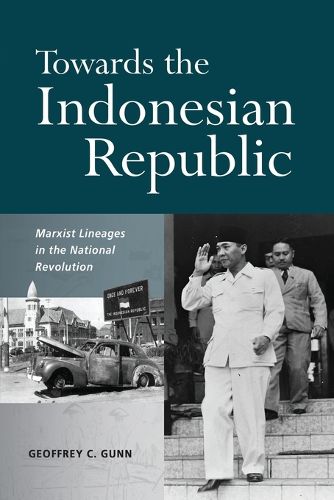Readings Newsletter
Become a Readings Member to make your shopping experience even easier.
Sign in or sign up for free!
You’re not far away from qualifying for FREE standard shipping within Australia
You’ve qualified for FREE standard shipping within Australia
The cart is loading…






This title is printed to order. This book may have been self-published. If so, we cannot guarantee the quality of the content. In the main most books will have gone through the editing process however some may not. We therefore suggest that you be aware of this before ordering this book. If in doubt check either the author or publisher’s details as we are unable to accept any returns unless they are faulty. Please contact us if you have any questions.
Drawing on little known archival sources, this work brings to the fore the salience of a schism in the Indonesian communist movement between pro-Moscow loyalists and "national-communists" reaching back to the 1920s, which survived even the Japanese occupation and surfaced in the throes of the National Revolution (1945-49). At the heart of the rift lay contrasting visions of revolutionary tactics, the salience of Islam in an Islamic majority society, the vexed question of alliance between leftists and other anti-colonial forces, and even the concept and definition of state and national ideology. As such, we cannot ignore the lineages of Marxism in the National Revolution, which trace their roots to the pioneer actions on Java by Dutch communists, themselves influenced by the Bolshevik Revolution. Contrary to the image of a non-revolutionary peasantry and a nationalist leadership broken or tamed by colonial carceral practices, the picture that emerges is one of acute agency on the part of an awoken population at a critical historical moment at the end of World War II.
$9.00 standard shipping within Australia
FREE standard shipping within Australia for orders over $100.00
Express & International shipping calculated at checkout
This title is printed to order. This book may have been self-published. If so, we cannot guarantee the quality of the content. In the main most books will have gone through the editing process however some may not. We therefore suggest that you be aware of this before ordering this book. If in doubt check either the author or publisher’s details as we are unable to accept any returns unless they are faulty. Please contact us if you have any questions.
Drawing on little known archival sources, this work brings to the fore the salience of a schism in the Indonesian communist movement between pro-Moscow loyalists and "national-communists" reaching back to the 1920s, which survived even the Japanese occupation and surfaced in the throes of the National Revolution (1945-49). At the heart of the rift lay contrasting visions of revolutionary tactics, the salience of Islam in an Islamic majority society, the vexed question of alliance between leftists and other anti-colonial forces, and even the concept and definition of state and national ideology. As such, we cannot ignore the lineages of Marxism in the National Revolution, which trace their roots to the pioneer actions on Java by Dutch communists, themselves influenced by the Bolshevik Revolution. Contrary to the image of a non-revolutionary peasantry and a nationalist leadership broken or tamed by colonial carceral practices, the picture that emerges is one of acute agency on the part of an awoken population at a critical historical moment at the end of World War II.